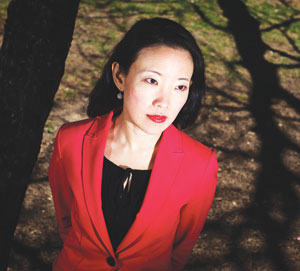As lawyers in Ontario get familiar with their newly elected benchers, some of the winners are reflecting on the race for a seat at Convocation and whether there should be spending limits on campaigns.

“There is a huge disparity in the amount of money that is spent on this,” says Jeffrey Lem, an incumbent bencher who’s returning to Convocation.
“Some people spend a ton of money. I wouldn’t be surprised if, all in, there were some people [who spent], out of pocket, close to $75,000,” says Lem.
In the last week of Law Society of Upper Canada’s bencher election campaign, some candidates revealed having spent anywhere from $800 to a few thousand dollars as part of their efforts to win a seat. But Lem notes some candidates sent out messages via mailing lists that came with a price tag of $50,000.
“I find that astounding,” says Lem.
“It takes my breath away every time this election comes along and I notice the kind of money that’s spent on these campaigns.”
Lem also says he noticed some “aggressive” and at times “distasteful” campaigning in the election. To him, the election resembled municipal politics.
The concern is apparently more of an issue in Quebec where lawyers are electing a new president of the Barreau du Québec. A flurry of “partisan” e-mails forced current president Bernard Synnott to make a recent video plea for a more respectful discourse during the campaign.
Montreal lawyer Simon Laplante says he was happy to see the call for moderation. He says that at one point during the campaign, he was receiving at least a couple of e-mails from candidates every day.
“At a certain time, it was pretty annoying,” he says, noting the e-mails have cooled off now that voting has started.
But when it comes to candidates’ campaign spending, Lem is reluctant to say setting a limit is the correct remedy. With some candidates having the benefit of name recognition from the outset, it’s harder for lawyers in small towns to compete with such people without spending a lot of money, says Lem.
Prominent and vocal figures like Joe Groia and Rocco Galati made it to the winning list of candidates without the help of highly visible advertising, according to Lem. “I don’t think Groia spent more than a few thousand max,” he says.
“If you put a spending limit on it, how would a decent, hardworking guy from Peterborough ever compete? It would be all the Galatis and the Groias only.”
But University of Ottawa Faculty of Law Prof. Joanne St. Lewis, one of the winners in the April 30 bencher election, says a spending cap is the next logical step after term limits to encourage young lawyers to run. “If we really want young lawyers to have a fair shot, then it’s not going to be possible for them to do those hard cardboard stock brochures and to buy the mailing lists, so they’ll be at an economic disadvantage. If we want their voices, then we’re going to, I think, really have to think at the next level,” she says.
“Now we have space because we have term limits,” she adds.
“The next step after term limits is to really encourage people to run and make the opportunity to run economically not a penalty.”
St. Lewis, who’s returning to Convocation after serving as a bencher from 2001-09, says this election was different in that candidates felt the need to have a position on diversity issues.
“That was a marked difference from before,” she says.
“[Before], it was almost like you owned diversity because in a sense it was part of your own experience. But now, many people believe and accept that they have a responsibility and diversity matters to them. And I think they’re genuine about it.”
According to Lem, the new face of Convocation itself means diversity on the law society’s governing body has become reality.
“We are now diverse. It is now a
fait accompli. We are not sitting around going, ‘Woe is us. This is horrible.’ No.
We are it now.”
Among the newly elected benchers is Dianne Corbiere, a past president of the Indigenous Bar Association. The list also includes Brampton, Ont., sole practitioner Raj Sharda and Anne Vespry, an Ottawa family lawyer.
Incumbents Avvy Yao-Yao Go, Raj Anand, Jack Braithwaite, and Julian Falconer will also be returning to Convocation.
In total, lawyers elected 16 women. They include first-time benchers Sandra Nishikawa, Janis Criger, Teresa Donnelly, and Gina Papageorgiou.
Nishikawa, a Crown counsel who campaigned on a platform centred on a more diverse profession as well as access to justice, says she’s happy with the results. The diversity she advocated for “is reflected in the results of this election,” she says. “There’s a pretty strong representation of racialized lawyers . . . and women as well.”
Vocal proponents of alterative business structures, such as lawyers Mitch Kowalski and Colin Lachance, failed to win enough votes to sit at Convocation.
While it’s hard to predict how a vote on alternative business structures would go, benchers like St. Lewis say they have many questions and that, without sufficient answers, they’d likely vote against the idea. St. Lewis says there’s something “instinctively” concerning about lawyers working for big corporations that traditionally have a different set of values, something she suggests “could result in fundamental distortions of who we are and what we are and the accountability.”
For related content, see "
Diversity push for 2015 elections."

 “There is a huge disparity in the amount of money that is spent on this,” says Jeffrey Lem, an incumbent bencher who’s returning to Convocation.
“There is a huge disparity in the amount of money that is spent on this,” says Jeffrey Lem, an incumbent bencher who’s returning to Convocation.